The 10 most legendary road bikes
For the number and quality of their victories, for the technological advances they brought, for their pure aesthetics or for the halo of the riders who wore them. Even because, without further ado, they seduced the minds of the fans of their time. There are probably as many reasons as there are people to include a particular model in the list of the 10 most legendary road bikes. And if a few years ago we told you about what we considered to be the 10 most spectacular mountain bikes in history, today we bring you the road bikes. From the 1930s to the present day. And, of course, including the decade that is undoubtedly the epicentre of the most memorable bikes, as well as the craziest and most extravagant: the 90s.
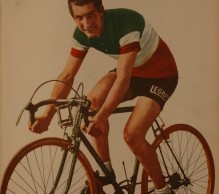
- The legendary Legnano de Gino Bartali
- The classic Bianchi of Fausto Coppi
- The Merckx by... himself
- Greg LeMond's revolutionary chrono Bottecchia
- Graeme Obree's bizarre Old Faithful
- Miguel Induráin's Pinarello Sword
- Mario Cipollini's customisable Cannondale
- The crazy Bianchi of Johan Museeuw and co. at Roubaix
- Lance Armstrong's carbon Trek
- The lightning-fast Specialized Venge from... almost all the best sprinters of the last decade
The legendary Legnano de Gino Bartali
To begin with, we go back to the era of the cycling pioneers, before the Second World War. And the bicycle brand that marked that era was undoubtedly the Milanese Legnano. It was not only Bartali who raced with it (and its all-powerful team) before founding his own. Coppi (with it he won his first Giro in 1940), Alfredo Binda, Learco Guerra...
In 1940 it was the first bike to incorporate Campagnolo's Corsa rear derailleur, which made it possible to shift gears up and down without getting off the bike and removing the rear wheel. Yes, it was operated by two levers (you can see them on the Bianchi below) on the top chainstay, and you had to pedal backwards to do it. Nevertheless, it was a spectacular advance and an advantage for Italian riders. Today, the brand survives in low cost models, but it is not even a pale reflection of its former self.
RECOMENDADO
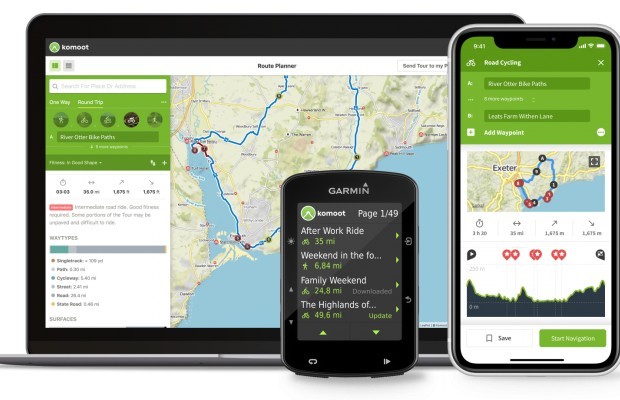
The best apps for cycling and mountain biking
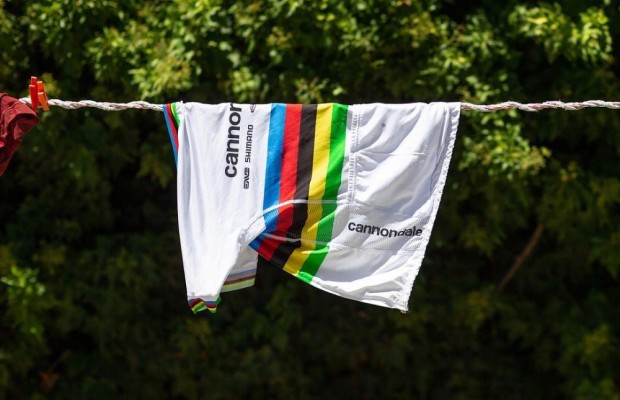
How to wash your cycling clothes? 10 keys to make them always look new
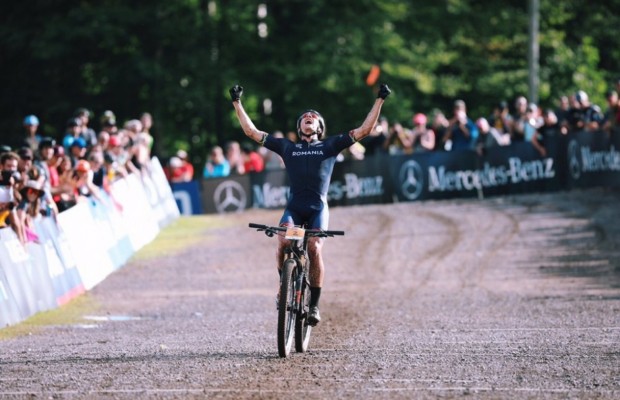
The real importance of signing up for a race
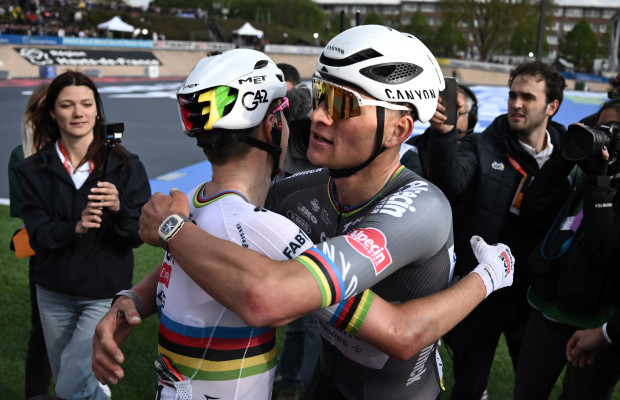
Complete list of the highest paid cyclists of 2025
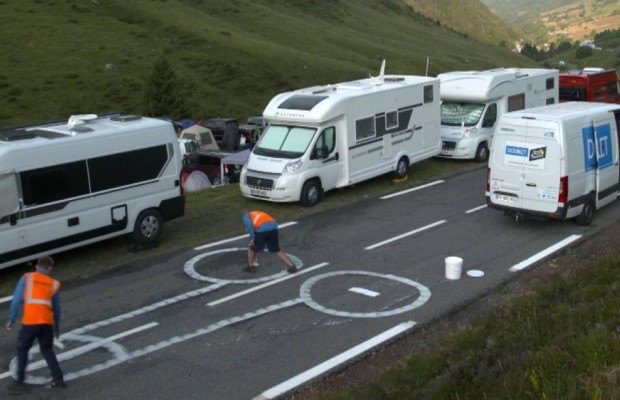
This is how they erase the penises that are drawn on the roads of the Tour de France
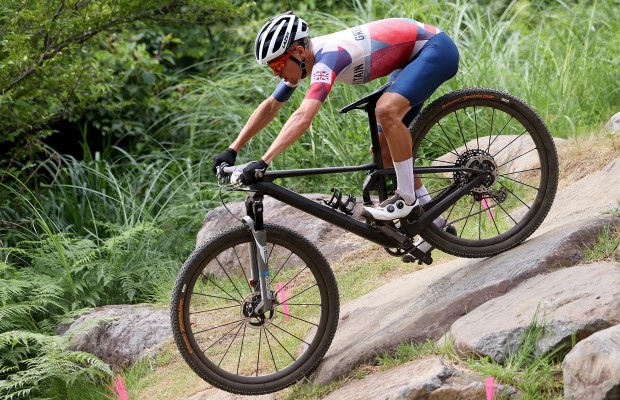
What bike size do you need? Here's how to find out
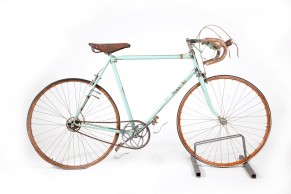
The classic Bianchi of Fausto Coppi
The beautiful light blue colour of this bike and the Campionissimo have been forever linked in the collective imagination since the 1946 Giro d'Italia, the one that cemented the Coppi-Bartali rivalry. Need I say any more after seeing the image above?
Probably not, because it remains one of the masterpieces of cycling history. "A man alone at the helm. His jersey is sky-white. His name, Fausto Coppi", as the commentator Mario Ferretti said in a phrase for history. Today, the brand is still at the top with models like the Oltre XR4.
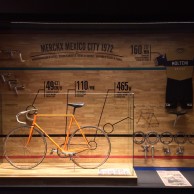
The Merckx by... himself
Of course, our review could not miss the greatest rider of all time. Especially because Eddy Merckx's fame reached such heights that he didn't have to wait until he retired to have his own brand. In the 1970s, when he was at the peak of his career, he had them made in Italy by the manufacturer DeRosa, who put his name and even his effigy on the head tube. That was probably the first mass phenomenon to reach the frames.
Later, in the 1980s, he founded his own company, also with the advice of Ugo DeRosa, but now independent. Perhaps the best remembered of those bikes was the one above, which he used in the 1972 Hour Record in Mexico City.
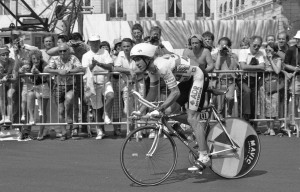
Greg LeMond's revolutionary chrono Bottecchia
In 1989, Greg LeMond beat Laurent Fignon to win the Tour de France by just 8 seconds in a heart-stopping final time trial. And he probably wouldn't have done it if it hadn't been for his bike, from the Italian brand Bottecchia, which had an addition that first caused hilarity and then panic in the rest of the peloton.
We are talking, of course, about the 'horns', which today we know as time trial or triathlon handlebars. But the geometry of the frame, with its drooping top tube, also contributed to the American's success. If ever there was a bike that single-handedly changed the course of history in professional cycling, this is it.
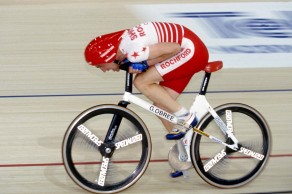
Graeme Obree's bizarre Old Faithful
And finally we enter the mid-1990s, an era full of extraordinary and absurd ideas (and lack of UCI regulations). OK, maybe the bike that the Scotsman Obree built with his hands in his garage, using parts from a washing machine, can't be considered strictly 'road', because there is no record of it ever being used outside a velodrome. With such ultra-compact handlebars, any bump could end in tragedy.
But we couldn't ignore this little piece of history that turned the televisions of half the world with its 'egg position' (as it was baptised, at least in Spain), and that started the fever for the Hour Record. In just 3 years since its appearance, it was beaten 7 times, when not a single one had been done in the whole of the previous decade. As a demonstration of what a person's ingenuity alone can do, there is no bike that can beat it.
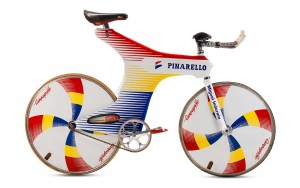
Miguel Induráin's Pinarello Sword
Perhaps the most famous bike in history, and undoubtedly the only one that the average Spaniard knows how to call by its name. Aerodynamic, yes, but also a work of art with a 120% nineties aesthetic, Induráin's Sword became part of popular culture, despite the few times he used it.
In fact, the Navarrese rider preferred his old one. This did not prevent him from achieving great triumphs with it, such as the Hour Record in 1994 or the first of the two time trials of the 95 Tour.
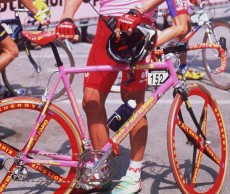
Mario Cipollini's customisable Cannondale
Today, it seems commonplace for the leader of the Tour, La Vuelta or the Giro, or even the leader of the regularity or the mountains, to have a special bicycle made in the colour of the jersey. But the truth is that this was not done until Cipollini came up with the idea back in 1997, with the support of Cannondale. In fact, the Lion King got a few fines for that and for changing the colour of his bib shorts.
But it paid off. So much so that the American bike manufacturer, who was a complete unknown in Europe, began to become a name recognised by all followers of the sport. Maybe not otherwise, but on an aesthetic level, 'il bello Mario' was always three steps ahead of his contemporaries.
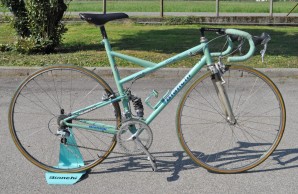
The crazy Bianchi of Johan Museeuw and co. at Roubaix
Again, lack of regulations and creativity. In 1994, Johan Museeuw rode a road bike in Paris-Roubaix, but with full suspension, like a MTB. Did it work for him? No, in fact it was a failure, but over the years it has gained mythical status.
Incidentally, Bianchi didn't give up, and the following year he prepared another similar (but different) model for the classicist Stefano Zanini. Although he didn't win either, those bikes went down in history as some of the most interesting and rare bikes ever seen in the professional peloton. They are, shall we say, cult bikes.
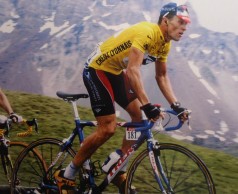
Lance Armstrong's carbon Trek
By 1999, carbon bikes were already a very strong trend, but someone had to be the first to wear the yellow jersey in Paris on one. And that someone was the American Lance Armstrong, and that bike was a Trek 5500 OCLV. Of course, the Texan achieved that feat by doping, as we later learned. But that doesn't detract at all from his bike.
In fact, his 7 Tours, of which he has been deprived, were won on a Trek carbon bike. And, with the exception of Óscar Pereiro in 2006 (magnesium), this material has not been removed from the top step of the podium (and all the others, frankly). Nor is there any end in sight to the reign of carbon.
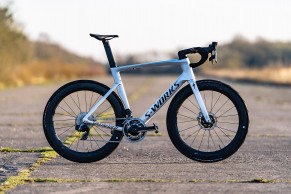
The lightning-fast Specialized Venge from... almost all the best sprinters of the last decade
Mark Cavendish has achieved many of his victories with it. Peter Sagan, his three World Road Championships. And Tom Boonen and Marcel Kittel have also used it... The list of sprinters that the Specialized S-Works Venge can boast is almost endless. And if that wasn't enough, it was the first to win a top-level race with disc brakes (it was in 2017... how things have changed in less than 5 years).
Specialized says it's the fastest bike in the world and, given the names associated with it, it doesn't take much to prove them right. It may not be very media-friendly today, but it's likely to become as legendary as the bikes we've reviewed above over time.